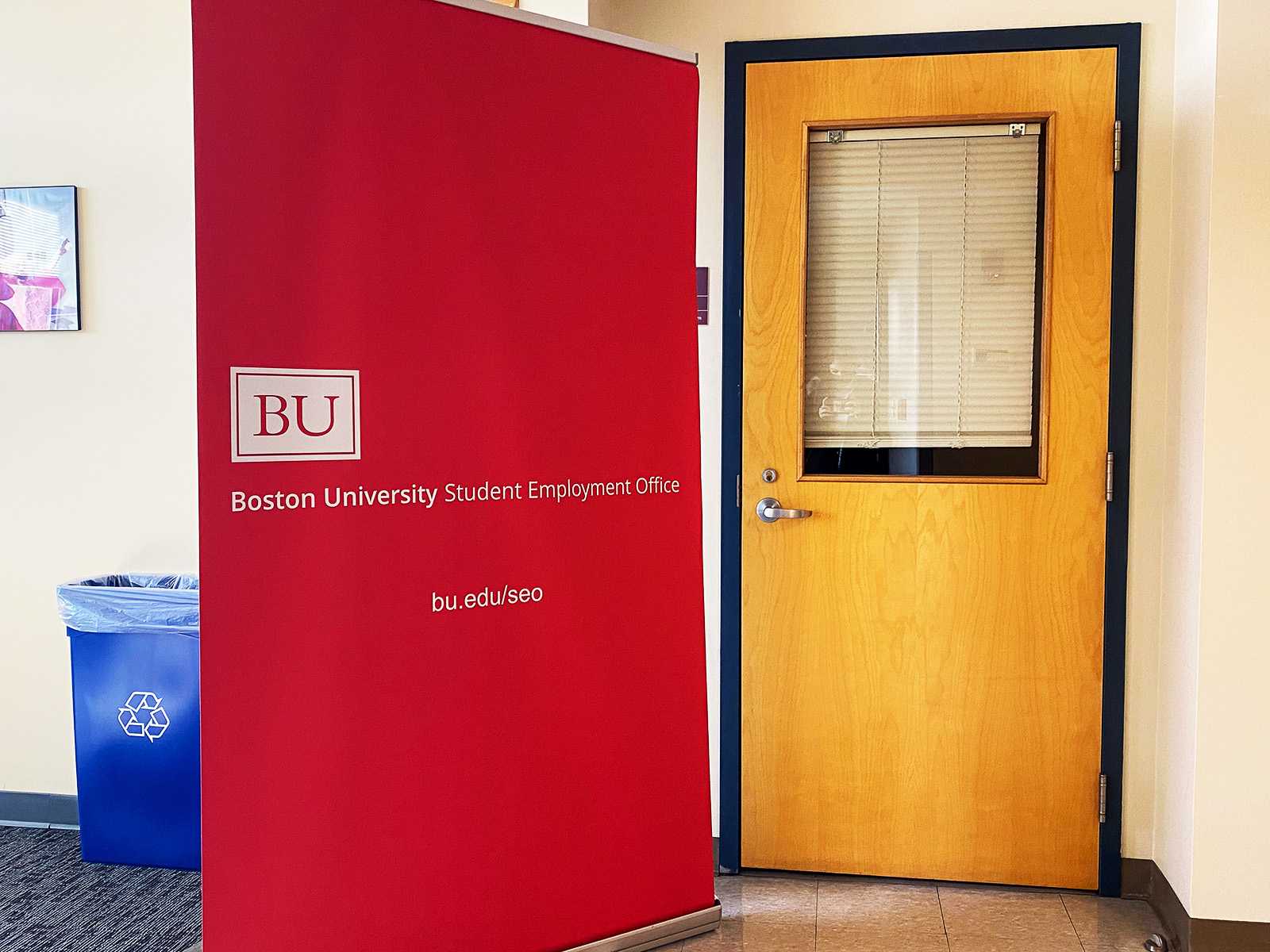Last year, Boston University students started Spring Recess March 7. Four days later, the University announced students wouldn’t return for in-person learning, instead switching to a then little-known conferencing app among students: Zoom.

Now, almost a year later, Zoom is where students spend most of their days. But for some international students, a year of remote learning means much more than a lack of in-person learning.
Some have not been back to campus since.
Yusi Jin, a junior in College of Communication, is currently back home in Beijing, where she’s been since the end of last March.
But because she is 13 hours ahead of Boston, Jin has had to adjust her sleep schedule to attend classes synchronously. When she was in Boston, she said she’d try to go to bed before midnight, and wake up around 7 or 8 a.m.. Now, her sleep-wake cycle is turned on its head.
“Now, even though I have classes until midnight, I think my latest class ends at 3 a.m., but I will still wake up automatically … at 8 [a.m.],” she said. “I try really hard to make myself sleep more, but I just can’t.”
As an advertising major, Jin said she signed up for BU’s AdLab to stay connected with the BU community this semester. The class is comparable to a “student organization plus an internship,” Jin said, and allows her to interact with other BU students in her group.
This semester, she is also taking two Questrom School of Business classes to fulfill her minor, which she said have also made her feel like a part of campus again.
“I talk to people every day and we meet, so I feel pretty connected and involved to campus life,” she said. “Joining class like this and having group projects definitely helped me get connected.”
While remote learning imposes some limitations on social interactions, students also said there are certain advantages to being home. Because most of her classes are at night, Jin said she had time last semester to do an internship during the day, which would be a more difficult process in the United States.
“In my home country, I’m the one with ‘privilege,’ nobody will judge me based on my nationality or whether I have this document or that document,” Jin said. “I have a lot of job options to choose and I get a lot of real life experiences due to remote learning.”
Kenny Yang transferred into COM last Fall. He said he has been taking remote classes from South Korea since he transferred.
Yang said though he struggles to feel adequately connected to campus, he does appreciate the opportunities of staying home and working.
“You can still see your friends and your family,” Yang said. “As an international student for me, I think it’s harder for me to get a job or get an opportunity from the U.S., but here it’s easier.”
However, he said keeping up with the Eastern time zone has been taxing.
“You have to wake up at around 3 a.m., and it’s hard to go back to sleep and then you sort of end up getting insomnia,” he said. “My daily routine is just screwed up. Thirteen hours ahead … it’s just painful.”
Paying the same tuition as in-person students is frustrating, he said, because he does not get the same college life as other students do.
“You stay here and then you take classes online, but you still pay the same cost,” Yang said. “That’s an issue.”
As for Renwei Yu, a sophomore in College of General Studies who has been studying remotely from Ningbo, China, his routine hasn’t been affected too drastically thanks to asynchronous learning options.
“All the classes that I have chosen are either pre-recorded or those morning classes at Boston time, which means I don’t have to stay up late everyday,” Yu wrote in an email. “The latest class I have will still be ended at 12am my time.”
Despite the flexibility of remote learning, Yu wrote he has lost some motivation to study and pay attention to his classes.
“The negative side is definitely the effectiveness of the studying,” he wrote, “I sometimes have a hard time focusing on the zoom lecture, let alone watching the pre-recorded lecture myself.”
In addition to staying on top of classes, staying involved in activities outside of academics has also been a challenge for some students. Yu wrote because of the significant time difference, he finds it difficult to stay involved with classmates.
As the one-year anniversary of remote learning approaches, Yu wrote it “crazy” to think he has been learning remotely for that time. Looking back thus far, he rated the experience “a 6.5 out of 10.” One lesson he’s learned is that remote learning is difficult, but self-driven and possible with determination.
“Throughout the remote learning, I think one thing that stands out to be particularly important is self-discipline,” Yu wrote. “It is all about yourself, whether you want to learn it or not, because nobody is around you to motivate or push you, it is all on your own to pull it through.”



























































































































